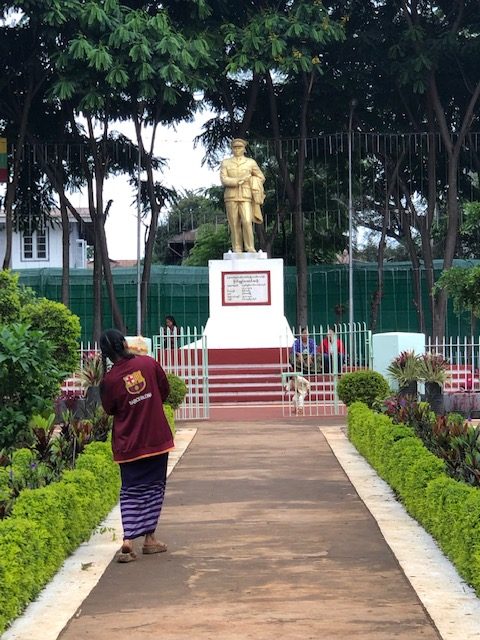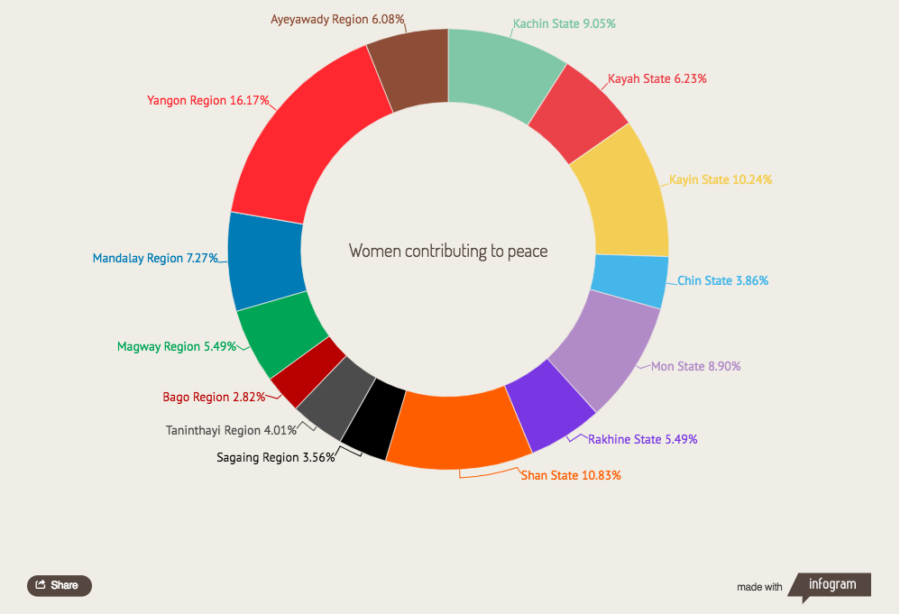by Anna Plunkett

In 1994, some fifty years after the Holocaust ended, the Rwandan Genocide rocked the world; forcing us to re-evaluate the international community’s role in addressing crimes against humanity. Yet in 2017 it became clear that the call for such atrocities to happen ‘Never Again’ was more a sentiment than a commitment to the world’s most oppressed. As the world watched Rohingya villages pillaged and burned, the violence forced over half a million persons to flee. The UN failed to act, respond, or protect those in Myanmar’s Western State.
The Crisis
It was in August 2017 that the ongoing plight of the Rohingya people erupted onto international consciousness as over half a million people fled their homes and villages in Myanmar across the border to Bangladesh. In the weeks and months that followed, first-hand accounts, mobile footage, and aerial imagery provided evidence of the extent of the devastating violence and destruction, including widespread rape and torture, mass killings, and the razing of villages. These actions, conducted by the military, were condoned as part of a ‘land clearance’ operation said to be focused on the neutralisation of ethnic armed rebels operating in the area.
Whilst shocking, the warning signs of the possibility of such atrocities were there. Despite the country’s rich diversity, the Rohingya have struggled to gain legal recognition within Myanmar. The Citizenship Law of 1982 removed the nominal legal status they had held since independence within the country. Although they were eventually granted white cards, which provided them nominal rights, it also identified them as having a migrant rather than citizenship status. Moreover, these cards were revoked before the 2015 election leaving most of the community with no access to their right to vote and with no Muslim candidates being fielded for the election. Further laws restricted the Rohingya’s access to education, healthcare, or work, as well as leaving them without any right to marry and have children. If this was not enough, in 2015 the migrant boat crisis in Asia was only a warning sign of what, for the Rohingya people, was to come just a few years later in 2017.
The Response
Despite the warning signs of oppression, the international recognition of the difficulties the Rohingya faced came too little and too late. In the immediate wake of the crisis, the UN and other international organisations were left paralysed after Myanmar refused to grant access to the affected region or officially acknowledge the events unfolding there. Despite international outcry and pressure being placed on the newly elected government, the violence continued unabated. On the international level, a lack of consensus within the UN Security Council left its international mechanisms unable to respond effectively to the ongoing crisis.
The UN response was further limited in-country by internal struggles. The UN Special Rapporteur Yanghee Lee, who can no longer enter the country, has struggled to lead and complete effective monitoring on Myanmar’s human rights situation due to ongoing barred access to affected communities. Moreover, in 2017 the Resident Coordinator of the UN Country Team in Myanmar was rotated out after the state government raised complaints with regards to suspected bias. Although a UN Special Envoy has since been deployed and the Security Council delegation visit to Myanmar conducted in May 2018 went ahead, access is still limited with most negotiations held in the capital Naypyidaw, far away from the realities of Rakhine.
Where are we now
It took almost a year for the reality of the Rohingya situation to be officially recognised. The UN report summarising the fact-finding missions finally identified what many in the human rights community had been labelling it for over a year, accusing the Myanmar military of the Rohingya genocide. This is a claim the Myanmar government continues to refute.
Investigations continue, and in November 2019, The Gambia filed a lawsuit with the International Court of Justice on the crimes of genocide against Myanmar. The case was heard in The Hague the following month with Daw Aung San Suu Kyi representing and defending Myanmar against the lawsuit. This event, controversially, presented a disturbing portrait of the Nobel Peace Prize Winner and previously world-renowned human rights activist. The final verdict may take months or years to be read.
Whilst there has been limited success in reaching a sustainable solution to the ongoing plight of the Rohingya, over the last year there has been increasing movement towards some cooperation. In October 2018, Myanmar and Bangladesh agreed on a repatriation programme for the refugees. Yet few Rohingya have shown willingness or even interest in returning, with no guarantee of access to citizenship or protection from the military should they do so. Further, the continued refusal of the government to identify the group as Rohingya, or to accept as valid accusations of crimes against humanity or genocide, highlights an unwillingness to compromise or cooperate with either the affected people or the international community to resolve this deadlock.
A reflection on the utility of the Genocide Convention
An independent report into the UN’s handling of the Rohingya Crisis has identified ‘systematic and structural failures’ to protect the Rohingya people. We are not merely witnessing an unfolding tragedy in the mountains between Myanmar and Bangladesh, even one on a scale we never thought possible again. More significantly, this episode demonstrates the difficulties and failures of the UN to protect the world’s oppressed populations.
These failures highlight one of the most structural obstacles facing the UN – the willingness of its member states to cooperate. Myanmar is a member of the UN and despite not signing the Rome Statute, is still a signatory on the 1948 Genocide Convention. Their engagement and acceptance of international law is intermittent and limits the ability of the international community to cooperate and engage in Myanmar. Demonstrably, the presence and acceptance of UN policies to protect minority communities from state oppression, namely the Genocide Convention and Responsibility to Protect, have proven inconsequential. In the face of ‘Never Again,’ we have indeed stood by and observed such crimes occur. The effectiveness of UN’s policy, for all its good intentions, is dependent on the support and acquiescence of the host state and where this is not provided, neither is the protection of the world’s most vulnerable.
Anna is a doctoral researcher at the Department of War Studies, King’s College London. She received her BA in Politics and Economics from the University of York, before receiving a scholarship to continue her studies at York with an MA in Post-War Recovery. She was the recipient of the Guido Galli Award for her MA dissertation. Her primary interests include conflict and democracy at the sub-national level, understanding how various political orders are impacted by transitions at the sub-national level.




